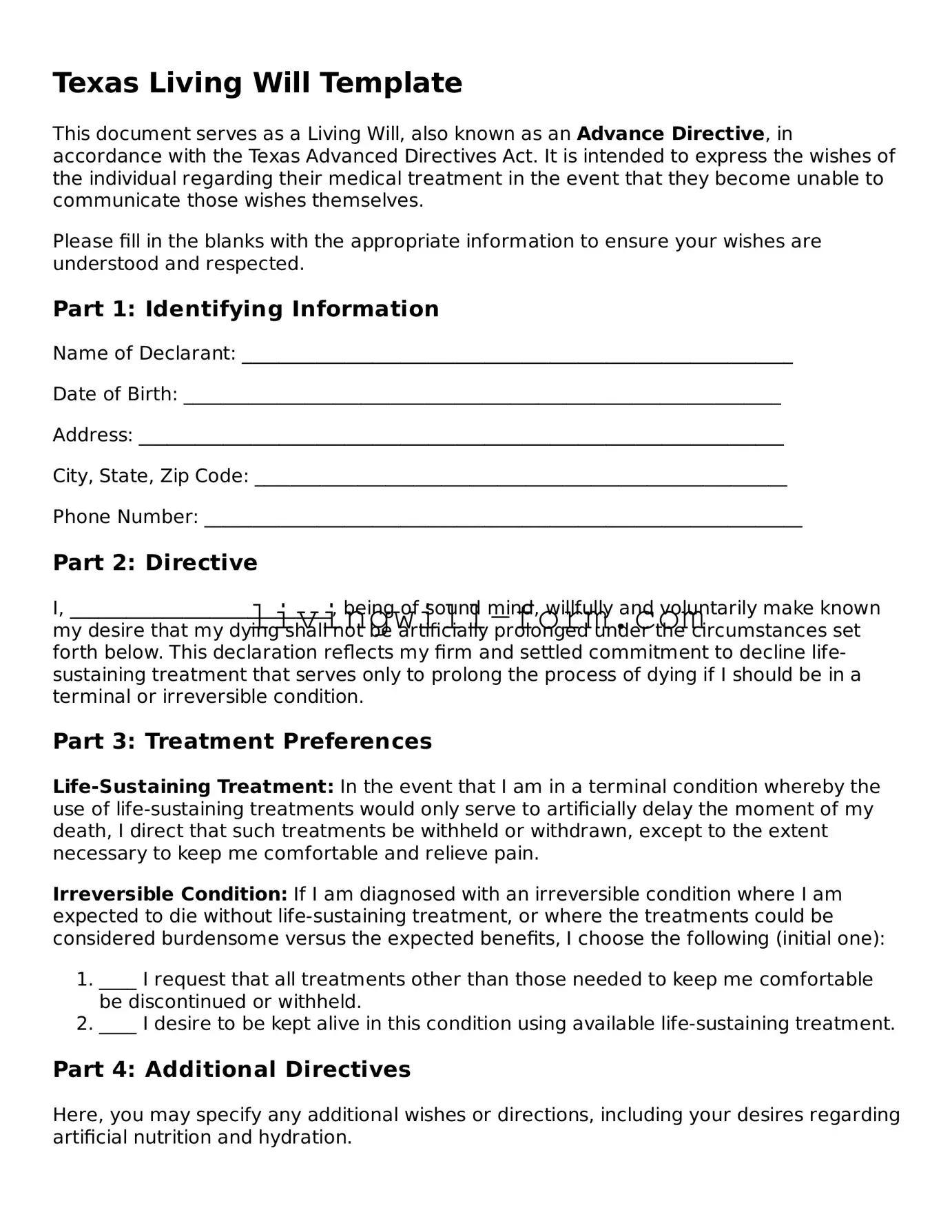Texas Living Will Template
This document serves as a Living Will, also known as an Advance Directive, in accordance with the Texas Advanced Directives Act. It is intended to express the wishes of the individual regarding their medical treatment in the event that they become unable to communicate those wishes themselves.
Please fill in the blanks with the appropriate information to ensure your wishes are understood and respected.
Part 1: Identifying Information
Name of Declarant: ___________________________________________________________
Date of Birth: ________________________________________________________________
Address: _____________________________________________________________________
City, State, Zip Code: _________________________________________________________
Phone Number: ________________________________________________________________
Part 2: Directive
I, ____________________________, being of sound mind, willfully and voluntarily make known my desire that my dying shall not be artificially prolonged under the circumstances set forth below. This declaration reflects my firm and settled commitment to decline life-sustaining treatment that serves only to prolong the process of dying if I should be in a terminal or irreversible condition.
Part 3: Treatment Preferences
Life-Sustaining Treatment: In the event that I am in a terminal condition whereby the use of life-sustaining treatments would only serve to artificially delay the moment of my death, I direct that such treatments be withheld or withdrawn, except to the extent necessary to keep me comfortable and relieve pain.
Irreversible Condition: If I am diagnosed with an irreversible condition where I am expected to die without life-sustaining treatment, or where the treatments could be considered burdensome versus the expected benefits, I choose the following (initial one):
- ____ I request that all treatments other than those needed to keep me comfortable be discontinued or withheld.
- ____ I desire to be kept alive in this condition using available life-sustaining treatment.
Part 4: Additional Directives
Here, you may specify any additional wishes or directions, including your desires regarding artificial nutrition and hydration.
Part 5: Signing
I understand that I can revoke this directive at any time. I am emotionally and mentally competent to make this directive, and understand the full import of this grant of powers to my agent.
Signature: _______________________________________ Date: ______________________
State of Texas, County of _____________________
This document was signed in my presence on (date): ________________ by (name of declarant) _______________________________ who appeared to be of sound mind and under no duress, fraud, or undue influence.
Witness 1:
Printed Name: ____________________________________
Signature: _______________________________________ Date: ______________________
Witness 2:
Printed Name: ____________________________________
Signature: _______________________________________ Date: ______________________

